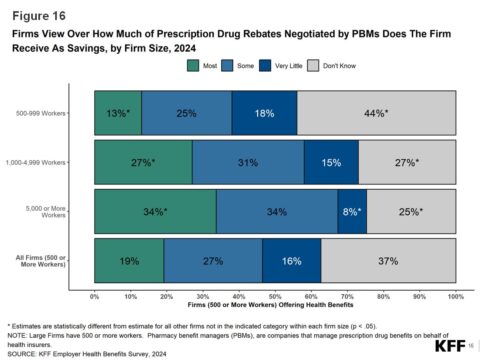Apologies for the unexpected absence yesterday. It was the first official collegiate game for my social media manager, so my attention was elsewhere. She had quite the debut, including the game-winner.
Blue Shield of California is going to buy Humira biosimilars for $525 a month from Fresenius Kabi, making them available to consumers for $0. Blue Shield not getting this deal because some PBM did a great job of negotiating on their behalf. They’re getting this deal because they’re avoiding PBMs altogether.
The Bloomberg coverage (gift link because it’s a well-done piece you should read) highlights that the Blue Shield price is the lowest known price right now. It’s lower than the Mark Cuban price, lower than the GoodRx price, and a lot lower than the price being offered by PBMs on the PBM white-labeled Humira.
While it’s possible that there’s still rebate sorcery that is driving prices lower than those that are visible, it certainly suggests that there is another path.
(Blue Shield is pretty explicit about what that other path looks like: “We don’t want rebates. We don’t want middlemen,” they told Bloomberg.)
Oh, and while we’re talking white-labeled meds, the Bloomberg story mentions that there are at least two letters from Senators to the FTC asking the agency to get to the bottom of what the PBMs are up to here.
This is probably a tricky one for the FTC: my impression is that the white-labeled products probably** do benefit consumers, but it involves a transfer of value from the biosimilar manufacturer to the PBM in a way that ensures that PBMs accrue value that may not be passed along to health plans.
I’m not sure it’s the best way to ensure the long-term health of the biosimilar marketplace, either. What company wants to fight to get a biosim approved, only to have to hand over some percentage of the sales to the PBM in return for access?
** The whole Blue Shield story suggests that this isn’t an absolute and that it’s possible health plans — and their members — might be even better off following the Blue Shield blueprint.
One of the dangers of a newsletter is that you can’t really go back and update it when something seismic happens. Once this is in your inbox, it’s in your inbox.
But I wish that I had waited another 30 minutes or so before hitting “send” on Monday because minutes after I pushed that edition out, there was a pretty major update to my “Arc” on J&J’s 340B rebate gambit. (I still stand by the framework I laid out, BTW.)
J&J has decided to walk back its 340B rebate effort in response to the government’s threat to pull J&J products from Medicare and Medicaid if it persisted in its effort to move 340B discounts for two products to a rebate model.
It was quite the game of chicken here: J&J had a legally viable approach that would have fundamentally changed 340B oversight and HRSA was threatening a nuclear option. J&J swerved, for the obvious reason that — even if HRSA was bluffing — no one wants to take even a small chance that seniors will be deprived of their medicines.
Still, this particular debate isn’t over. The underlying tension — the unwillingness of HRSA or covered entities to take seriously the duplicate discounts issue — is still there. And the legal arguments that J&J is making are still valid. And the company is explicit, in its letter, that it’s reserving its legal rights.
So we’re not at the end of the story.
Bill Sarraille, my go-to thinker on 340B issues, looked at what has to happen for J&J to shift gears to litigation over this, but his impression seems to be that lawsuits are probably a question of “when,” not “if.”
CVS is caught in an interesting position. There was a lot of coverage of the news that the company is thinking about breaking up its vertically integrated health care businesses as a solution to moribund growth. But the Wall Street Journal, today, makes a compelling case that there’s no simple way to do so. Damned if they do, damned if they don’t.
A lot of the controversy around drug patents, at its root, revolves around the FDA’s unwillingness to set and enforce rules, not any action by manufacturers. The whole issue is laid out well in this STAT piece from May, and pressure is increasing: Sen. Bill Cassidy has now asked the FDA to get its act together.
Yes, the vice presidential debate included some mentions of drug pricing and manufacturing. But it seemed like neither candidate cared about the topic, so I’m not going to bother giving those mentions any thought.
Thanks for reading this far. I’m always flattered when folks share all or part of Cost Curve. All I ask is for a mention or tag. Bonus points if you can direct someone to the subscription page.





